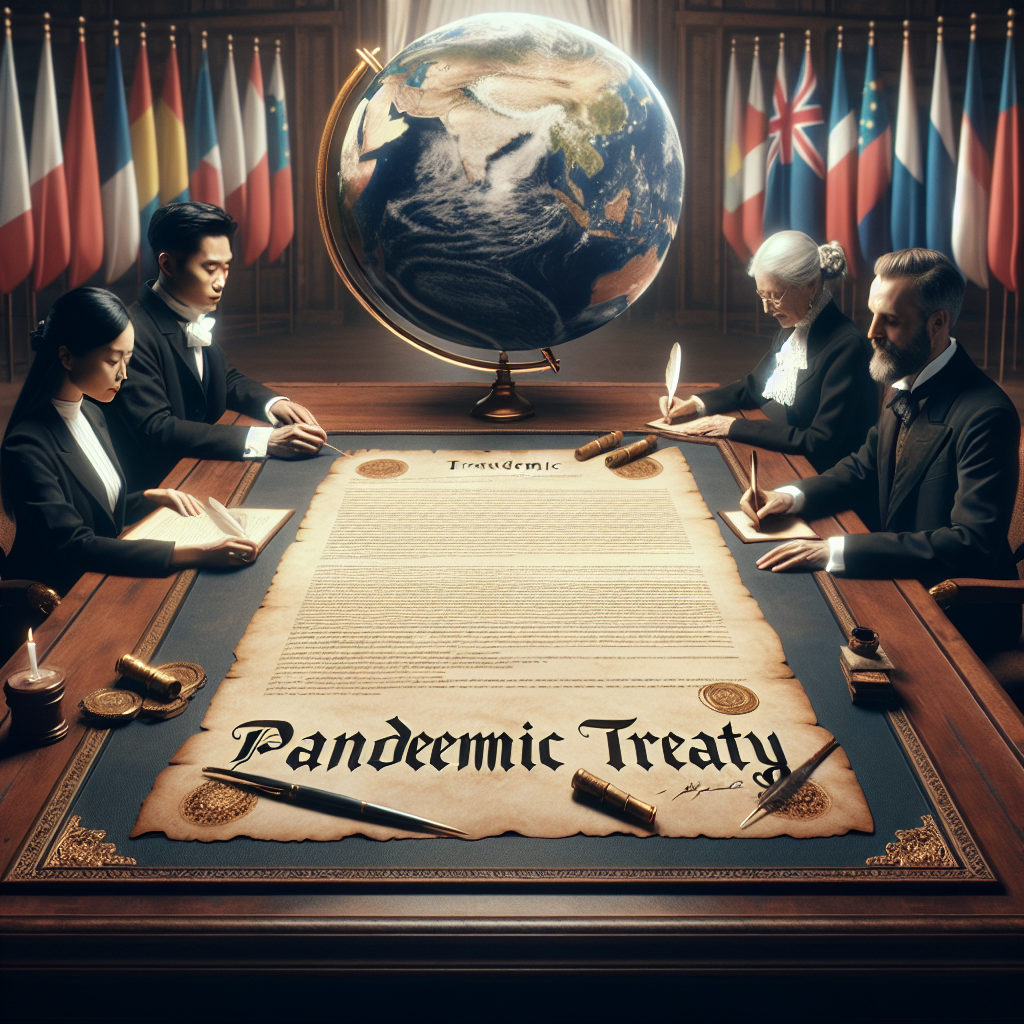NZ Asserts Sovereignty in Health Policy Amid WHO Pandemic Treaty Talks
The draft Pandemic Treaty, which has taken three years to negotiate, is set to be presented to WHO member states during the assembly, starting next week.

As global attention turns to the World Health Assembly's annual meeting in Geneva, New Zealand has firmly stated that any decision to sign the proposed World Health Organization (WHO) Pandemic Treaty will hinge on a comprehensive National Interest Test. This declaration, made by Foreign Minister Winston Peters and Health Minister Simeon Brown, emphasizes New Zealand’s intent to maintain full control over its public health decision-making.
The draft Pandemic Treaty, which has taken three years to negotiate, is set to be presented to WHO member states during the assembly, starting next week. Although the text of the Treaty has been finalized, adoption and ratification are still in the early stages and are expected to take several years. In that time, nations like New Zealand will weigh their options carefully before making any binding commitments.
Sovereignty Comes First
Speaking on behalf of the government, Winston Peters was unequivocal: “Decisions about how New Zealand responds to any health emergency are made in Wellington, not Geneva, and we are determined to preserve our sovereign decision-making ability.” This statement underlines the nation's longstanding commitment to independence in public health policy, a stance reinforced by past experiences managing the COVID-19 pandemic.
The government is wary of any clauses in the Treaty that might dilute national autonomy. Peters stressed the importance of ensuring that no international agreement compromises New Zealand's right to determine its own public health responses. “Any Treaty needs to confirm the sovereignty of countries to address public health matters within their borders,” he said, adding that the WHO must not be empowered to “direct, order, or change national laws or policies.”
This includes decisions on traveler entry bans, vaccination mandates, lockdown implementations, and other pandemic control measures. These are regarded as deeply domestic matters that must remain under the jurisdiction of elected national governments.
Support for Global Health Collaboration — With Conditions
While strongly affirming national sovereignty, the New Zealand Government also expressed support for the overarching goal of the proposed Treaty — to strengthen global health systems and pandemic preparedness. Health Minister Simeon Brown acknowledged the importance of coordinated international action, particularly in light of the COVID-19 pandemic's sweeping impact.
“New Zealand supports the aim of strengthening global health systems and to improve pandemic preparedness and response,” Brown said. “This will also help New Zealand support our Pacific partners to better manage future pandemic responses in our region.”
New Zealand has consistently advocated for improved cooperation and resource-sharing among nations to better handle transnational health threats. However, its support for international frameworks like the Pandemic Treaty is not unconditional.
A Cautious Path Forward
The government's plan to subject the Treaty to a full National Interest Test signals a cautious approach that balances the benefits of global cooperation with the imperative of national control. This test will involve a thorough evaluation of how the Treaty aligns with New Zealand's strategic, legal, economic, and public health priorities.
Officials expect the process to take years and stress that no decision will be made lightly or in haste. New Zealand’s approach is reflective of a broader trend among democratic nations reassessing the role of international organizations post-COVID, particularly when it comes to public health governance.
The World Health Assembly’s discussions next week are expected to be intense, with various nations bringing their own priorities and reservations to the table. For New Zealand, the message is clear: it will not compromise on sovereignty — and any international commitments must pass a rigorous test of national interest.
ALSO READ
India Reaffirms Global Health Equity at World Health Assembly
Modi Advocates Global Health Collaboration at World Health Assembly
India Reaffirms Global Health Equity at 78th World Health Assembly in Geneva
China Blocks Taiwan's World Health Assembly Participation
PM Modi Advocates for Global Health at World Health Assembly










